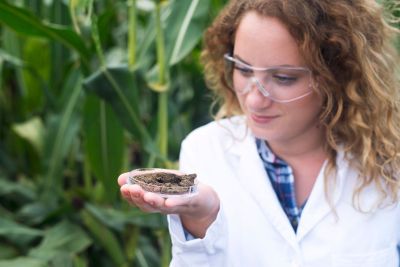While tasks such as weeding and irrigation often take precedent, many are starting to take a closer look into what it takes to create healthy and thriving garden soil. Learning more about the role of microbes in the soil is just one way to increase the overall health of the garden. Can plants benefit from soil microbes though? Let’s learn more about soil microbes and nutrients.
What Do Soil Microbes Do?
Soil microbes refer to the tiny microorganisms living in the soil. While most microbes in the soil serve the purpose of decomposition, they can also play a major role in the growth and development of plants. Different microorganisms can impact nutrient levels and, ultimately, the needs of plants in the garden soil. Becoming more familiar with soil microbes and nutrients will be critical for growers as they work to amend garden soil for each season’s planting. Learning about the nutrient composition of soil is simply not enough information to ensure that it is healthy.
How Do Soil Microbes Affect Nutrients?
Soils which have not been tilled frequently are proven to have greater numbers of organic matter that supports the activity of soil microbes. Different types of microbes in the soil, such as bacteria, actinomycetes, fungi, protozoa, and nematodes all work to serve specific functions. While some microbes work to make nutrients more readily available for uptake by the plants, others may work to improve different plant needs. Mycorrhizae, for example, is a type of fungi that can improve a plant’s ability to receive water. Not only can increasing the numbers of beneficial microorganisms in the soil improve the overall health of plants, but many may also fight against pathogens which may harm or cause disease in plantings. Beneficial nematodes, for example, are microbes in the soil that can help combat potential threats to plant health. With more knowledge regarding beneficial microorganisms in the soil, growers are better able to create and maintain balanced garden ecosystems.
